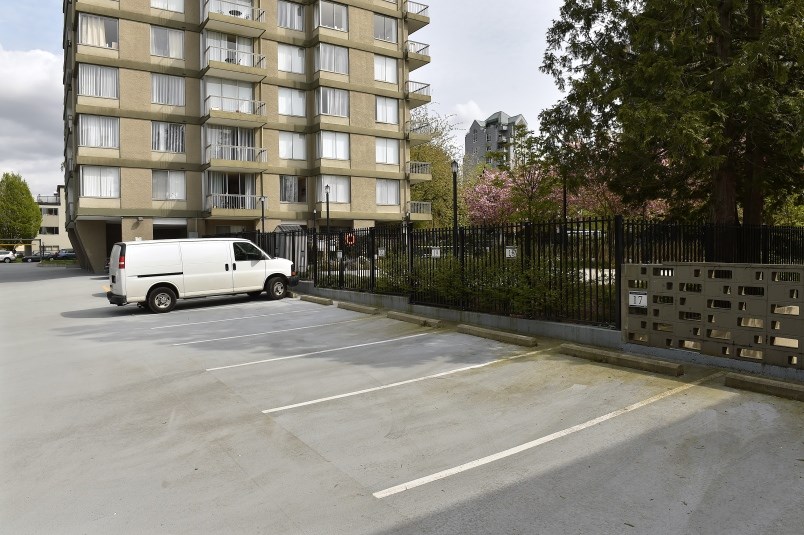If Martin could do anything at the age of 85 it would be to still drive.
But the Burnaby senior can’t due to problems with his eyes, which is why he’s so confused that his landlord is still charging him a parking fee as part of the rent for his basement suite in the Heights neighbourhood.
Martin – who didn’t want his real name used due to fear of retribution from his landlord as well as a future landlord if he ends up moving out – said he was able to drive up until a year ago. He used to park at the back of the house where he lives and the landlord charged extra for the privilege.
Martin admits he forgot about the fee that’s part of his rent because “I forget more as I get older” and so he’s been paying it for about 10 months.
“When I finally remembered, I told me landlord I shouldn’t have to pay it anymore,” Martin said. “He got really upset and said that it’s part of living here but that doesn’t make sense. I just don’t know what to do. I don’t want to get kicked out. He’s pretty sneaky about it.”
Martin was looking for help and so I directed him to the Residential Tenancy Branch, but it’s not so easy. Martin has trouble hearing and seeing so what seems simple others isn’t so easy. He's also downright afraid of speaking to his much-younger and taller landlord and it's difficult to assert himself.
"I want my money back for the last 10 months, but I don't know how to get it," Martin said. "I don't have anyone to help me. My kids don't live here. I'm all alone."
It’s just another example of how some people – from scammers to landlords - take advantage of the elderly, especially during the pandemic, which has laid bare just how much we are letting down our elders.
This is another sign of how rough life is like for local renters.
Recent research showing Metro Vancouver’s abnormally high residential rental eviction rates is a dire warning sign for the region’s economic development, local urban development experts say.
The Housing Research Collaborative report funded by the University of British Columbia (UBC) and conducted by UBC researchers Silas Xuereb, Andrea Craig and Craig Jones was released on September 14. It highlights Metro Vancouver’s five-year eviction rate of 10.5%, which is far higher than the rate in Toronto (5.8%), Montreal (4.2%) and other major Canadian census metropolitan areas or the averages recorded elsewhere in Canada.
Those numbers are highly troubling, said Andy Yan, director of Simon Fraser University’s City Program.
Yan, who said Metro Vancouver is likely seeing a demographic shift with more people looking to rent homes long-term, said the new report poses serious questions for policy makers.
“It’s important that, as a city starts realizing [it is] a city of renters, it highlights the problem of creating a city for renters,” Yan said. “This report highlights the precariousness of renters in the housing system we live in. And, unfortunately, it’s not surprising given the state of what we know about what being a renter in Metro Vancouver means.”
The new report is one of the first comprehensive analysis of rental evictions in Canada based on data from the 2018 Canadian Housing Survey, which gathered data from more than 65,000 Canadians. The report also found the five-year eviction rate for B.C. reached 10.6% in 2018 – almost double that of Prince Edward Island, which was the second-highest province, at 6.8%, and almost three times higher than the rate in jurisdictions with the lowest eviction rates (Manitoba and Nunavut, 3.7%).
For Yan, the most worrisome aspect of the data is that renters tend to form a crucial portion of a city’s workforce. In most cities, he said, a younger demographic of renters has a higher tendency to work in front-line service jobs – the foundational, face-to-face aspect of the economy that is crucial to keeping things operational.
Yan also notes that younger demographics also carry a higher likelihood of including highly coveted “innovators” – people who bring new ideas that potentially disrupt the norm and create new technologies, concepts and, eventually, jobs.
“We desire innovators,” Yan said. “We want young people in our cities. But if they can’t afford rent or be certain they won’t be evicted, that ultimately affects the level of service, the level of economic growth we can look at.
“I think there is the belief that rental, for most people, is a phase. The idea is that the renters are on the road to home ownership. But with the type of economic changes happening in terms of job quality as well as types, it’s becoming the destination.”
- With additional reporting by Chuck Chiang, Glacier Media


